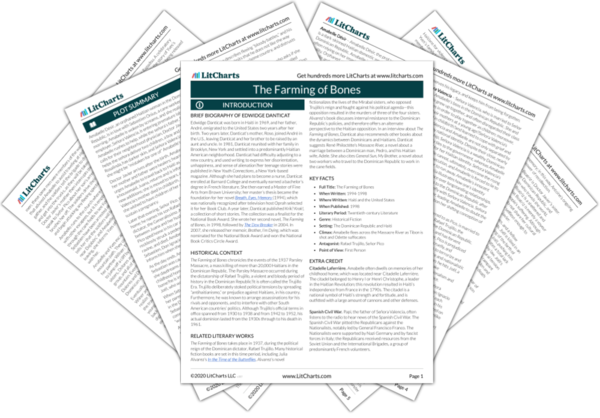The contrast between Amabelle’s comforting dreams and her fears of the river illustrate the long-standing tension between reality and fantasy in her life. Amabelle has often avoided reality by escaping into dreams. Now, she is physically unable to confront the river, a symbol of her inability to accept and understand her trauma. Instead, she dreams of monotony, a kind of extreme repetition that would help her evade her unknown future.
